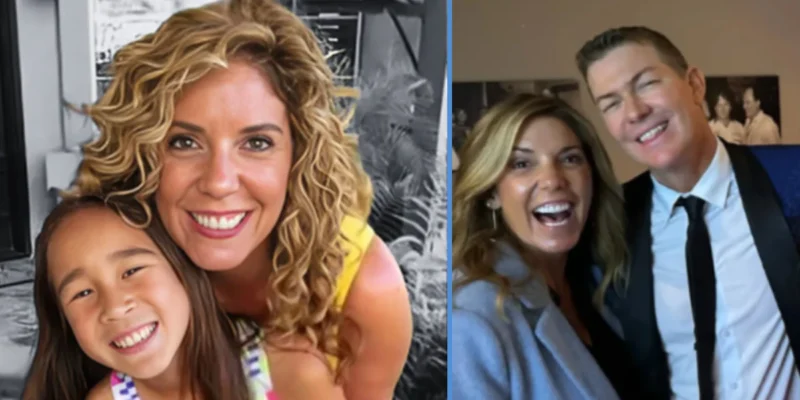
Francine Sinatra Anderson chose anonymity over stardom. Born into America’s most famous musical dynasty, she rejected the spotlight that consumed her grandfather, Frank Sinatra Sr, and father Frank Sinatra Jr. Instead, she built a life centered on charitable work and privacy.
Born November 16, 1972, Francine represents a new generation of celebrity children who refuse to capitalize on their family name. While social media culture pushes every celebrity relative toward fame, she maintains strict boundaries around her personal life. Her approach offers a masterclass in protecting identity within legendary families, similar to how Andrea Skeete managed privacy during her marriage to boxing legend George Foreman.
Early Life and Family Background
Francine’s childhood was shaped by absence and complexity. Her parents, Frank Sinatra Jr. and Mary Wallner, maintained a long-term relationship without marriage—a decision that reflected the entertainment industry’s unconventional relationship patterns of the 1970s.
Frank Jr. provided financial support but remained emotionally distant. He never publicly acknowledged Francine as his daughter, creating a painful reality that would influence her later decisions about privacy. This pattern of parental neglect affects approximately 19.7 million American children according to 2024 Census data, making Francine’s experience more common than celebrity narratives typically reveal.
The weight of the Sinatra name brought constant media attention. Growing up in celebrity genealogy means every family gathering, school event, and personal milestone becomes potential tabloid content. Francine learned early that fame inheritance comes with costs that most people never consider.
She shares this burden with half-siblings Natalie Oglesby Skalla and Michael Francis Sinatra. All three children faced similar emotional neglect from their father, creating bonds forged through shared experience rather than traditional family dynamics. Their collective resilience demonstrates how children adapt to celebrity family dysfunction.
Her mixed Italian-Scandinavian heritage added cultural complexity to an already complicated family structure. The Sinatra name carries Italian-American pride and musical tradition, while her Scandinavian roots through the Anderson name represent different values around privacy and achievement.
Cultural and Musical Influence
Frank Sinatra Sr. didn’t just sing—he defined American sophistication. His career spanned seven decades, selling over 150 million records worldwide. The Rat Pack era he anchored generated an estimated $500 million in entertainment revenue during the 1960s alone, establishing a cultural influence that persists today.
This massive legacy created impossible expectations for subsequent generations. Frank Jr. spent his entire career trying to escape his father’s shadow, achieving moderate success but never matching the cultural impact. His struggle illustrates how celebrity inheritance can become a burden rather than an advantage.
The entertainment dynasty’s pressure affects family members differently. While some embrace the spotlight, others like Francine recognize that living up to legendary standards often destroys personal happiness. Research from UCLA’s Center for Scholars and Storytellers shows that 73% of celebrity children report feeling pressured to enter entertainment careers.
Modern streaming platforms keep Sinatra Sr.’s music relevant to new generations. Spotify reports over 8 million monthly listeners for Frank Sinatra tracks in 2024, proving the family name maintains commercial value. This ongoing relevance means Francine’s decision to avoid capitalizing on her heritage represents a significant financial sacrifice.
The cultural weight of being a Sinatra descendant extends beyond music into American identity itself. Frank Sr. represented post-war optimism, Italian-American achievement, and entertainment excellence. Francine inherited this symbolic responsibility whether she wanted it or not.
Personal Journey and Career Choices
Francine made a revolutionary choice: she walked away from inherited fame. While celebrity culture encourages family members to leverage famous names for social media influence, reality shows, or entertainment careers, she chose complete anonymity. This decision required rejecting potentially millions in earning opportunities.
Her career remains deliberately private, reflecting a commitment to normalcy over profit. Unlike celebrity offspring who build personal brands around family connections, Francine actively avoids public attention. This approach contradicts modern celebrity culture, where privacy itself becomes a luxury commodity.
The challenges of maintaining anonymity while carrying a famous surname require constant vigilance. Every professional relationship, romantic connection, and social interaction carries potential for unwanted publicity. Francine developed sophisticated strategies for protecting her identity while participating in normal adult activities.
Her resilience demonstrates how celebrity children can reclaim personal autonomy. Rather than allowing family history to dictate life choices, she established independent values and goals. This path demands stronger character than simply following predetermined celebrity trajectories.
Living authentically while honoring family heritage creates ongoing tension. Francine must balance respect for Sinatra traditions with protection of personal boundaries. Her success in managing this balance offers valuable lessons for other celebrity descendants facing similar pressures.
Passion for Education and Philanthropy
Francine channels her resources toward meaningful social change rather than personal recognition. Her philanthropic focus on education addresses systemic inequality affecting America’s most vulnerable children. Education advocacy represents her primary vehicle for creating a lasting impact without seeking publicity.
Her support for underprivileged youth education programs demonstrates strategic charitable thinking. Rather than high-visibility donations that generate media coverage, she funds grassroots organizations that directly serve communities. This approach maximizes impact while maintaining the privacy she values.
Healthcare advocacy forms another pillar of her charitable work. Medical research funding and patient care programs receive support through carefully structured donations that protect her anonymity. Her contributions help advance treatment options for conditions affecting underserved populations.
Like Mallory Plotnik, who supports her husband Phil Wickham’s ministry while maintaining personal privacy, Francine demonstrates how celebrity relatives can contribute meaningfully without seeking recognition. Both women prove that influence doesn’t require visibility.
Arts education nonprofits benefit from her understanding of creative expression’s transformative power. While rejecting entertainment careers personally, she recognizes art’s value in developing young minds. Her funding helps schools maintain music and arts programs despite budget constraints.
Social justice initiatives receive strategic support aligned with her values of fairness and opportunity. Rather than supporting high-profile causes that generate publicity, she focuses on organizations creating systemic change through direct community work. This approach reflects a sophisticated understanding of effective philanthropy.
Navigating Fame and Privacy
Celebrity family members face unique privacy challenges that regular people cannot comprehend. Media outlets maintain a permanent interest in Sinatra family activities, relationships, and personal choices. This attention creates an environment where normal life activities become potential news stories.
The digital age amplified these challenges exponentially. Social media culture demands constant content creation and personal sharing, directly conflicting with Francine’s privacy values. Her ability to maintain anonymity in an era of digital surveillance demonstrates remarkable discipline and strategic thinking.
Public records and celebrity genealogy databases make complete privacy impossible. Francine’s family history remains permanently accessible to researchers, fans, and media outlets. She must accept this reality while protecting the aspects of life that matter most to personal happiness.
The psychological effects of constant potential scrutiny affect decision-making in every life area. Career choices, relationship decisions, and even daily activities must be evaluated through the lens of potential publicity. This burden creates stress levels that most people never experience.
Her success in maintaining boundaries while honoring family connections requires sophisticated social navigation skills. She participates in family events and maintains relationships while avoiding situations that generate unwanted attention. This balance demonstrates exceptional emotional intelligence and strategic planning.
Conclusion
Francine Sinatra Anderson proves that celebrity inheritance doesn’t determine life direction. Her choice to prioritize personal values over public recognition creates a different kind of legacy—one built on authentic service rather than inherited fame. This approach offers a roadmap for other celebrity descendants seeking meaningful lives beyond entertainment industry expectations.
Her philanthropic contributions create a lasting social impact without requiring personal publicity. Through strategic charitable giving focused on education, healthcare, and social justice, she honors her family’s tradition of community service while maintaining personal boundaries. This method of legacy-building prioritizes substance over visibility.
The significance of her story within celebrity culture demonstrates how choice can reshape family narratives. Rather than simply inheriting predetermined roles, she actively chose her path and values. Her example encourages others facing similar pressures to prioritize authenticity over expectation.
Janet Smollett successfully raised six children in entertainment while protecting their family values, demonstrating another approach to managing celebrity family dynamics. Francine’s single-person journey toward privacy represents an equally valid choice for celebrity descendants seeking authentic lives.
Francine continues inspiring through quiet dignity and purposeful action. Her commitment to privacy, meaningful philanthropy, and personal authenticity offers a compelling alternative to traditional celebrity culture. In an era where fame often overshadows substance, her story reminds us that true impact happens beyond public recognition.





